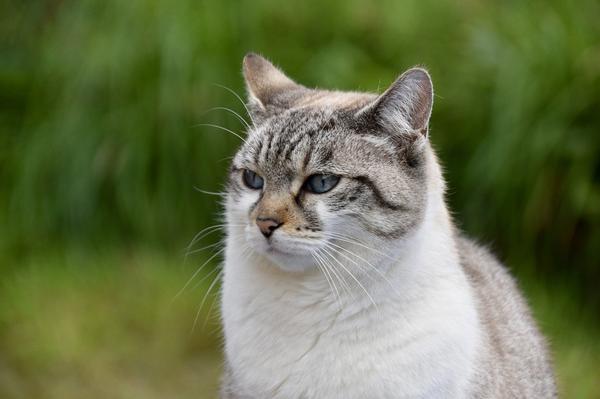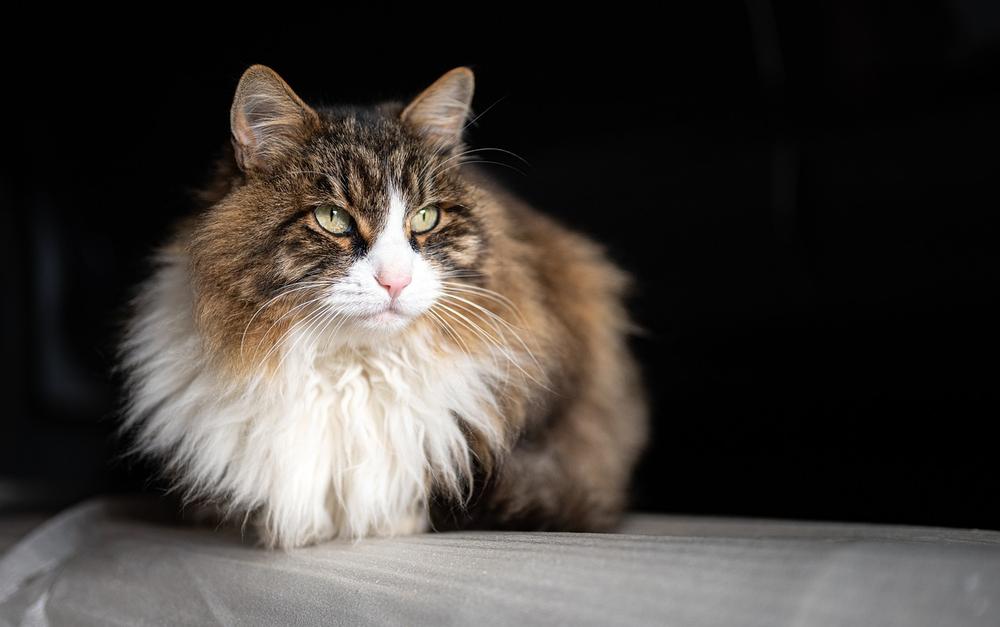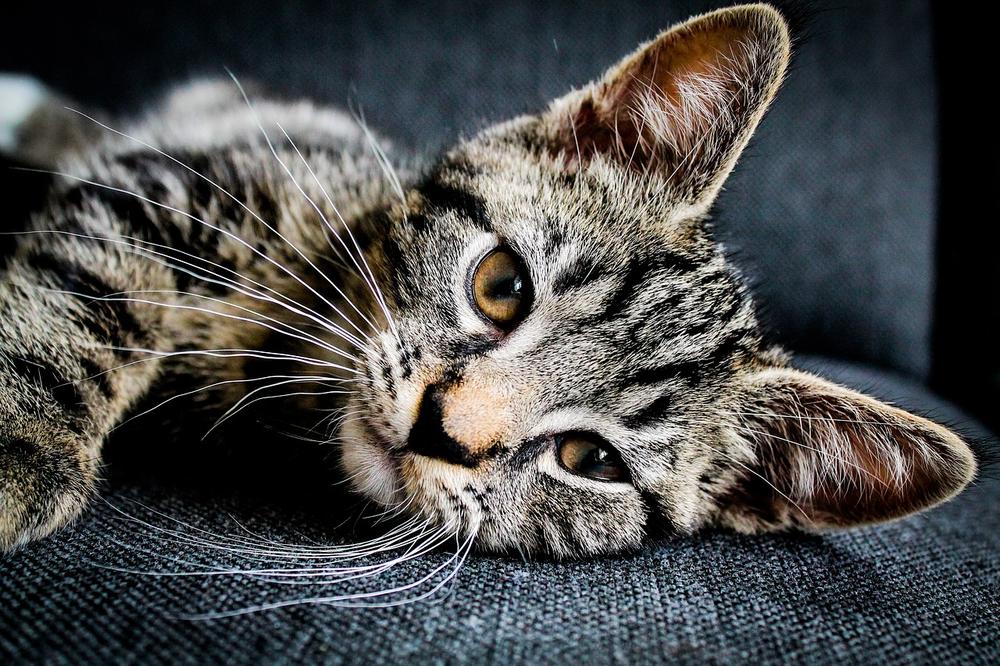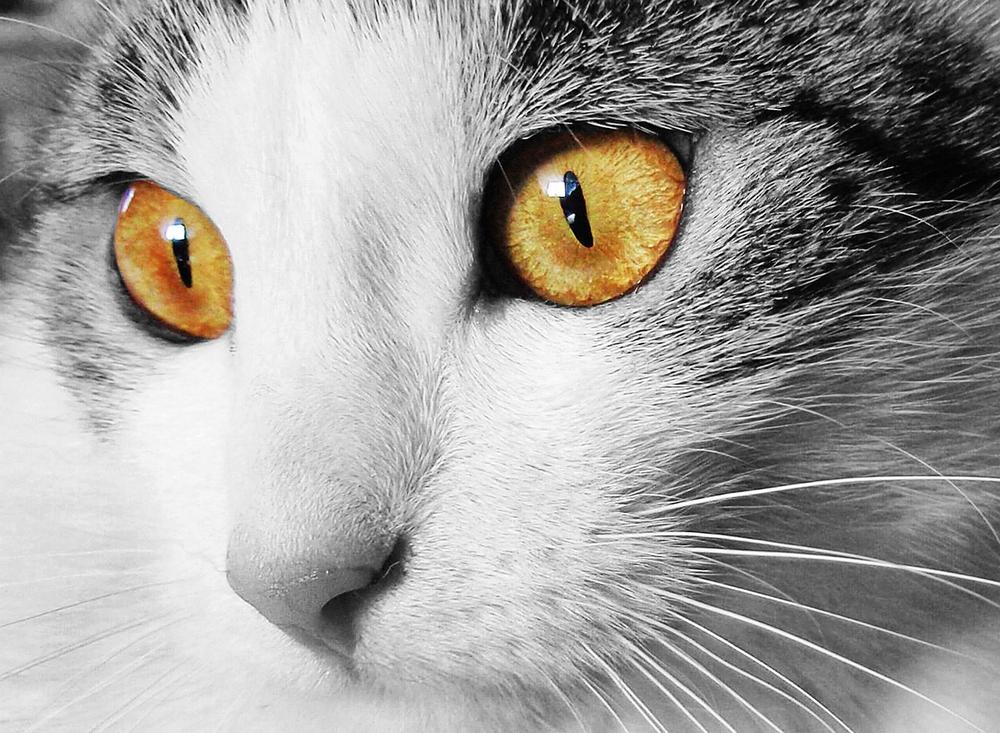How to Apologize Effectively to a Cat (They Understand This!)

Want to apologize to a cat like a pro?
Ever wondered if there's a secret formula that will make your feline friend forgive you instantly?
Well, don't worry, because I've got your back. 😺
I know you're probably thinking, "How in the world can I apologize to a cat?"
Trust me, I've had the same thought.
But fear not, because I'm about to spill the beans on the best ways to make amends with your furry companion.
So buckle up and get ready, because this blog post is about to change your cat apology game forever.
The Ways You Can Apologize to Your Cat So They Understand
To keep a strong bond with your cat, you ought to apologize to them.
Here are seven ways you can say sorry in a way they'll get:
- Show regret through body language: Get down low and make eye contact, letting them know you're sorry.
- Speak softly: Use a calm and gentle tone when saying sorry. Cats respond well to soothing voices.
- Offer treats as a peace offering: Give them their favorite treat to show your sincere apology.
- Join in their activities: Spend time doing what they enjoy, showing them you want to be together.
- Give extra affection: Shower them with snuggles and scratches where they love it most, to express remorse.
- Surprise them with special treats or a yummy meal: Make up for any unintentional harm by giving them something super tasty.
- Heap compliments on them: Praise and reward them with treats or catnip, reinforcing your apology.
Cats might not grasp apologies like humans do, but expressing remorse and making things right is crucial.

Keep an eye out for signs of forgiveness like relaxation and seeking physical contact after you've said sorry. 😺
But how do you prevent unintentionally offending your cat in the first place?
Here's what you need to know to create a peaceful and harmonious environment for your feline companion...
Ways Humans Offend Cats
Providing a calm space for your furry friend
Cats are delicate creatures who crave tranquility.
They have sensitive ears, so be mindful of loud noises or sudden movements that might startle them.
Just like us, they have thoughts, feelings, and opinions of their own.
If I offend or upset them physically or emotionally, it can lead to a change in how they treat me.
Addressing unintentional mistakes
I must recognize and rectify any distractions that may have unintentionally bothered my cat.
Cats are perceptive and can sense when something is off.
If I accidentally disturb their peace, you have to take the time to apologize and make things right.
Showing that my actions were unintentional goes a long way in preserving trust between us.
Respect and kindness should always prevail
When interacting with cats, always prioritize respect and kindness.
Never tolerate any form of animal abuse. Harming or mistreating a cat is completely unacceptable. Treat them with the same compassion and consideration as you would any other living being.
In our relationship with cats (and all living beings), more complex issues may arise that require sincere apologies to be made.
Accidentally bumping into a cat or causing spills typically doesn't negatively affect the bond between owner and pet.
However, genuine remorse and making amends are essential for maintaining a healthy connection.
Always remember that animals, just like people, have their reasons for their behavior.
To address unintentional mistakes when interacting with your furry friend, it's crucial that I recognize and rectify any unintentional distractions.
Cats are perceptive and can sense when something is off.
If I accidentally disturb their peace, I want to take the time to apologize and make things right.
If you're interested in learning more about why cats bite when petted and how to prevent this behavior, check out my article Why Does My Cat Bite Me When I Pet Her.
How to Tell if Your Cat Is Offended
Your cat's body language, including their tail position, tells you if they're offended or annoyed. A low, bushy, or flicking tail might mean offense or annoyance.
But a straight and elevated tail?

That indicates contentment.
You ought to understand your cat's mood.
If they need space, give it to them.
Let them calm down before you apologize. By waiting for your cat to relax, you show them respect and give them time to be more open to your apology. Cats speak with their bodies, so listen closely and respond accordingly.
Understanding Your Cat's Body Language
Cats communicate through their body language, including their eyes, tail, ears, and overall stance. Dilated pupils indicate fear or aggression, while half-closed eyes show relaxation and trust. Slow blinking is a sign of affection, like a kitty kiss. Pay attention to these subtle cues to understand your cat's emotions.
Decoding the Body Language of Your Feline Companion
Take a close look at your cat's eyes.
Their shape and dilation can provide valuable clues about their emotions.
Dilated pupils are indicative of fear or aggression, whereas half-closed eyes suggest relaxation and trust.
But that's not all...
When you approach your cat, carefully observe their body language.
Pay attention to the tail, ears, eyes, and overall stance.
These subtle cues offer precious insights into their current mood.
And here's an intriguing fact...

Your cat's body language extends to gestures like slow blinking.
This behavior is akin to a tender "kitty kiss," demonstrating their affection and friendliness. So, when your cat blesses you with a slow blink, reciprocate it.
It's their way of saying "I love you" in their unique feline language.
Oh, there's more...
Cats may exhibit apologetic behavior by rubbing against you, raising their tail, or even grooming you.
Nevertheless, you should resist the urge to attribute human characteristics to cats. Instead, appreciate their distinct emotions and behaviors.
Did you know?
While cats may not comprehend smiles as humans do, they do respond positively to slow blinking.
This friendly gesture conveys a sense of tranquility and warmth towards them.
Therefore, pay close attention to these subtle signs—soon enough, you'll become an expert at deciphering your cat's body language!
Creating a Peaceful Environment for Your Cat
Creating a peaceful environment for your cat is essential for their well-being.
To achieve this, you can try implementing the following tips:
- Provide hiding spots such as covered beds or boxes where your cat can retreat when they feel overwhelmed or threatened.
- Strengthen the bond with your cat by giving them undivided attention, speaking soothingly, and spending quality time together.
- Be patient and allow your cat to approach you on their own terms. Praise them for positive behaviors and make them feel safe.
- To avoid frightening situations, provide food and protection so that your cat feels secure in their environment.
- Use positive interaction and communication methods. Engage with your cat through gentle petting, offering new toys or catnip, and using a high-frequency tone to call them.
- Show friendliness through physical contact and using a gentle voice.
- Correct and redirect undesirable behavior with non-violent methods such as using foil or water bottles instead of punishment.
- Focus on using positive reinforcement training rather than chastising your cat.
- If accidents happen, display soothing and friendly behavior, apologize, and avoid giving treats for small accidents to prevent reinforcing unwanted behaviors.
With these suggestions, you can establish a calm setting where your cat feels secure and happy.
And if you find yourself struggling to maintain harmony in your relationship due to your beloved feline companion's antics, rest assured that I've got you covered.
In my Is Your Cat Causing Relationship Problems guide, you'll discover invaluable advice on resolving any challenges that arise.
From communication strategies to finding common ground, this resource will equip you with the tools you need to strengthen your bond with both your partner and your precious furball.
Take a moment to explore the insights shared there – you won't regret it.
Show Love: Apologize to Your Cat Today
Key Takeaways:
- Apologizing to a cat is important for maintaining a strong bond.
- Cats may not understand apologies like humans, but expressing remorse is crucial.
- Use a calm tone of voice and offer treats when apologizing.
- Show affection through love, scratching in their favorite spot, and joining them in activities.
- Leave treats in their bowl or provide a special meal to make amends.
- Apologize softly while blinking slowly and praise and reward them.
- Speak in a soft voice using baby talk and prioritize their feelings.
- Show affection by scratching behind the ears or gentle fussing.
- Avoid physical or emotional offenses to prevent changed treatment from cats.
- Address distractions that may have caused accidental offenses.
- Animal abuse should always be avoided.
- Observe the cat's body language and give them space if needed.
- Wait for the cat to calm down before apologizing.
- Approach the cat slowly and understand their mood through body language.
- Recognize how cats apologize through rubbing, raising their tail, or grooming.
And that wraps up today's article.
If you wish to read more of my useful articles, I recommend you check out some of these: Cats Can Recognize the Names of Other Cats, Can Cats Sense if You Dont Like Them, Why Do Cats Bring You Dead Animals, Cat Depressed After New Kitten, and Older Cat Attacking New Kitten
Talk soon,
-Sarah Davis